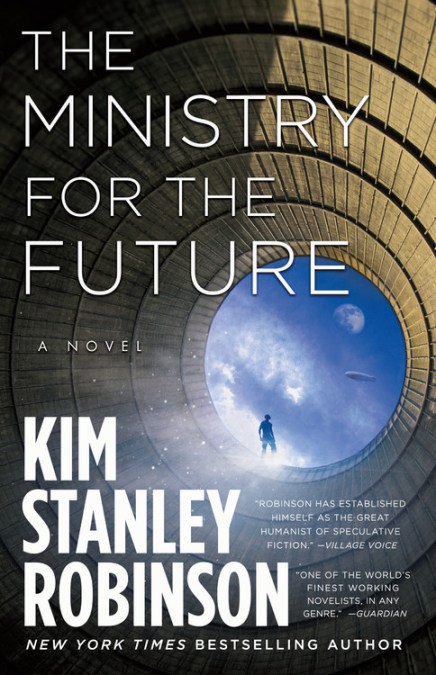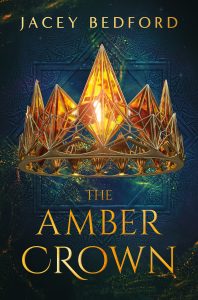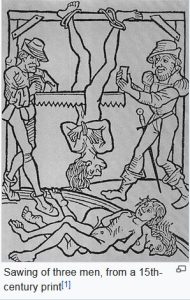Today I wandered around my bookshelves until I found a book that made me dream. Nostalgia is one of the better side-effects of the pandemic.
Recently I’ve been working away and trying to understand how writers develop worlds for novels. I started thinking about language and rhetoric decades ago, and my research now is where that track has led me. One of my big moments of “Oh, this is so much something I need to understand” came when I was studying in Toronto in 1983-84. I was doing a Masters in Medieval Studies and one of my teachers was Sister Frances. She told her favourite student pope jokes and she taught the rest of us Medieval literature and rhetoric.
The book I have before me right now is a tiny paperback, published in 1967. Unlike most of my old paperbacks, it’s held together very well. It was one of my textbooks for that class, and I’ve referred to it many times since, so I can’t help thinking that, for a sixties paperback, it’s very robust. I would like my old age to be robust, but I’m not made that way. It’s a translation of Geoffrey of Vinsauf’s Poetria Nova, and the translator was Margaret F. Nims, who was, in fact, Sister Frances.
I made sure, decades ago, that no-one could steal this little volume. I didn’t write my name in it. I printed a little label using a pseudo-Medieval font and an old dot matrix printer (it was a brand-new excitingly innovative printer in 1985) and the label reads:
Yee that desyre in herte and have pleasaunce
Olde stories in bokis for to rede
Gode matteres putt hem in remembraunce
And of the other take ye more hede
Whanne yee this boke have over-reade and seyne
To Gillian Polack restore yee hit ageyne.
I meant to commission several new sticky labels from artist friends for all my more recent books. I still want to do this, when I find the money.
Let me talk you through some of the reasons I love this volume.
Poetria Nova is a guide for writers by someone who knew his stuff. It taught me that it’s more important to be readable than to show off my erudition. The author shows off his erudition to write a manual, which makes good sense given the time and place of its writing. Also given its form, because it was written as a poem. It is, however, not a quick or easy read, even in English translation.
Anyone who looks hard enough into my fiction will see all kinds of daft allusions, because I am the kind of person who enjoys putting Easter eggs in my novels, but Geoffrey de Vinsauf taught me that showing off matters intellectual is secondary to ease of reading. In my dreams, my writing is elegant and learned and full of sophistication (and Easter eggs), but if readers don’t want to continue reading, then elegance and learning and sophistication are completely wasted.
Sister Frances taught me to look for the underlying rules and work out why they were applied to that kind of writing before thinking to dump them. The Poetria Nova is one of the sets of rules she used to explain this. She was explaining why rhetoric is so important to writers, and she had us apply rhetorical theory to some beautiful Middle English poems, which is why that particular rhyme marks that particular volume.
I decided I was incapable of writing poetry because I learned what was hidden by the words in just four poems. That’s the bad news. The good news is that I learned that knowing theory doesn’t improve writing unless the theory can be applied. It’s important to write and practise and create to make the theory so much a part of one’s being that the focus can be on using it to bring the world and the people who live in that world to life.
When I first read the manual, it looked like an awful lot of rules that were only good for people who like applying rules. Nearly forty years later and I can look at a rule and across to my fiction and see where it makes a difference. The thing is… I don’t apply the rules mechanically. I’ve learned (through the ‘part of one’s being bit) hear the music in the words and see the pictures they create. That’s when I’m writing at my best. I merely try to do this most of the time. The trying, though, is where the learning happens.
I don’t explain rhetoric at great length. I haven’t for years. Decades, even. I used to be able to, but not doing so means I’ve lost a lot of the words and concepts. There is, however, a few words I’ve used over and over again in teaching. This bit reminds me of the reasons for the rest. It gives me a structure to play with when I sit down to write.
The text is about the concept of structure, to be honest. It’s the idea that the order we set something down reflects the needs of what we’re writing about and makes it easier for a reader to understand what we’re saying. This is particularly important to me because my brain doesn’t work in a lineal fashion and I often have to re-order ideas to make them make sense. Knowing that there is an ideal order of words and of ideas for any type of writing helps me step back and ask how I should be writing and how I should be editing. There isn’t a single ideal order for all types of writing – writing is a wonderfully fluid and dynamic thing in that way – understanding genre means understanding what order of words and ideas work within a given genre.
The perfect order changes according to what we write, and Geoffrey of Vinsauf gives examples of how to start different types of stories. I tested all his opening styles, just the once. Medieval rhetoric is an imperfect vehicle for modern writing, but it was a lot of fun to translate into openings for novels. Since then I’ve been fascinated by openings and what they do and how they work and how they change over time and for different types of story.
One of my biggest issues with the openings of many modern novels I’ve read is that they introduce the first thirty or so pages perfectly, but not the rest of the book. It’s as if the writer has been trying for a perfect hook for a reader, then followed up that perfect hook for enough time to bait the publisher… but has forgotten that the whole novel should fall neatly into line. I feel betrayed when this hurts the whole story.
What is that bit of the text I use in teaching? It’s just a few words in the middle of the section on Amplification and Abbreviation. Geoffrey is talking about description:
“So let the radiant description descend from the top of her head to her toe, and the whole be polished to perfection.” I translate this to most modern styles as “If you need to move a character from one side of the room to another, find a way that adds to the story and doesn’t waste the moment. Isolate each element in order. Make every word count.”
I suspect most writers have books like this in our past. Not necessarily translations of Medieval technical manuals (our earlier selves always appear in our work, in their own way) but unexpected books all the same.
Sister Frances didn’t know I was a writer: I was very careful to keep that side of myself hidden from most of my lecturers in Medieval Studies. She nevertheless taught me more about writing than I learned from any other single lecturer in my whole varied academic career. Geoffrey de Vinsauf brings that back, every time, and, if it weren’t an unholy hour of the night here, I’d be hauling my volume of work by the Pearl-poet off the shelves right now and seeing what memories lurk in their lines.
 When I to went Clarion, waaaaaay back in the day, Algis Budrys taught a lesson on the five beat plot (variously the seven beat plot, the well-made plot, and I’m sure there’s another dozen names for it somewhere). The five beat plot boils down to: 1) the heroine has a problem; 2) the heroine attempts a solution; 3) an obstacle thwarts the solution; 4) the heroine solves the problem; 5) validation. (There are many different names for the five segments, but that’s the essence of the thing.)
When I to went Clarion, waaaaaay back in the day, Algis Budrys taught a lesson on the five beat plot (variously the seven beat plot, the well-made plot, and I’m sure there’s another dozen names for it somewhere). The five beat plot boils down to: 1) the heroine has a problem; 2) the heroine attempts a solution; 3) an obstacle thwarts the solution; 4) the heroine solves the problem; 5) validation. (There are many different names for the five segments, but that’s the essence of the thing.)
 fact, it fit my story very well, and I had a compelling and unique character arc. I work with middle schoolers, and they suffer from depression and anxiety at alarming rates. Anyone shocked? Think back to middle school. It’s a terrifying, stressful, horrific experience for many of us. Now we have the awareness and language to properly describe the toll it takes on our kids. But conversations about mental health are all-too-often relegated to the land of Young Adult, while our adolescents are talked down to or treated as if their problems couldn’t possibly be all that bad.
fact, it fit my story very well, and I had a compelling and unique character arc. I work with middle schoolers, and they suffer from depression and anxiety at alarming rates. Anyone shocked? Think back to middle school. It’s a terrifying, stressful, horrific experience for many of us. Now we have the awareness and language to properly describe the toll it takes on our kids. But conversations about mental health are all-too-often relegated to the land of Young Adult, while our adolescents are talked down to or treated as if their problems couldn’t possibly be all that bad.

 one character thinks it might be his fate, another reflects on it after seeing it take place. We tend to know about hanging, drawing and quartering. The drawing by the way was being drawn to the place of execution on a hurdle, not having the guts drawn out of the belly while still alive. So the victim was drawn through the streets, hanged and then his body cut into quarters. So really it should be drawn, hanged and quartered, in that order.
one character thinks it might be his fate, another reflects on it after seeing it take place. We tend to know about hanging, drawing and quartering. The drawing by the way was being drawn to the place of execution on a hurdle, not having the guts drawn out of the belly while still alive. So the victim was drawn through the streets, hanged and then his body cut into quarters. So really it should be drawn, hanged and quartered, in that order.
